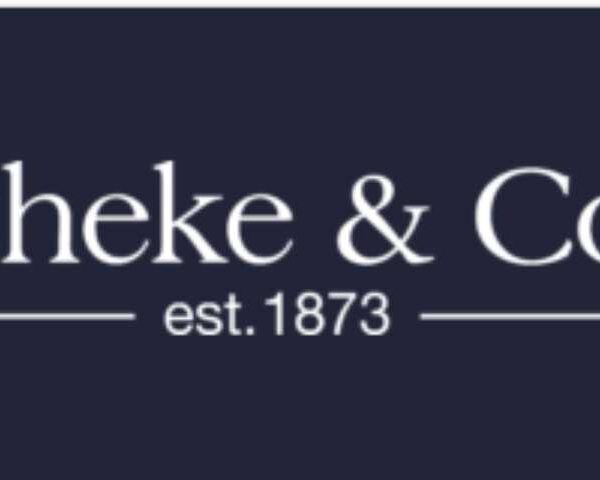Understanding your paycheck stub is essential for managing your finances effectively. Paycheck stubs provide detailed information about your earnings, deductions, and taxes, but the abbreviations and jargon used can sometimes be confusing. In this comprehensive guide, we’ll decode common paycheck stub abbreviations, explain their meanings, and provide tips on how to read and interpret your paycheck stubs like a pro.
What is a Paycheck Stub?
A paycheck stub is a document issued by your employer that outlines your earnings and deductions for a specific pay period. It accompanies your paycheck and provides a detailed breakdown of your gross pay, net pay, and various deductions. Paycheck stubs are important for tracking your income, understanding your tax withholdings, and managing your overall financial situation.
Common Paycheck Stub Abbreviations
Here’s a breakdown of common paycheck stub abbreviations and what they mean:
**1. Gross Pay (GROSS)
- Definition: Gross pay is the total amount you earn before any deductions are made. It includes your base salary or hourly wages, overtime pay, bonuses, and other forms of compensation.
- Abbreviation Examples: GROSS, GP
**2. Net Pay (NET)
- Definition: Net pay is the amount you take home after all deductions and taxes have been subtracted from your gross pay. This is the actual amount deposited into your bank account or provided as a paycheck.
- Abbreviation Examples: NET, NP
**3. Federal Income Tax (FED TAX)
- Definition: Federal income tax is the amount withheld from your paycheck to cover your federal tax liability. This amount is based on your income and the information provided on your W-4 form.
- Abbreviation Examples: FED TAX, FIT
**4. State Income Tax (STATE TAX)
- Definition: State income tax is the amount withheld to cover your state tax liability. Not all states have income tax, so this deduction may not appear on every paycheck stub.
- Abbreviation Examples: STATE TAX, SIT
**5. Social Security Tax (SOC SEC)
- Definition: Social Security tax is withheld to fund the Social Security program, which provides retirement, disability, and survivor benefits. This tax is a percentage of your earnings up to a certain limit.
- Abbreviation Examples: SOC SEC, SS
**6. Medicare Tax (MED)
- Definition: Medicare tax is withheld to fund the Medicare program, which provides health insurance for individuals aged 65 and older, and for certain younger individuals with disabilities.
- Abbreviation Examples: MED, MEDICARE
**7. 401(k) Contribution (401K)
- Definition: A 401(k) contribution is the amount you contribute to your employer-sponsored retirement savings plan. These contributions are typically made on a pre-tax basis, reducing your taxable income.
- Abbreviation Examples: 401K, K
**8. Health Insurance (HLTH INS)
- Definition: Health insurance deductions cover your portion of the premiums for your employer-provided health insurance plan. These deductions may include coverage for medical, dental, and vision insurance.
- Abbreviation Examples: HLTH INS, HEALTH
**9. Flexible Spending Account (FSA)
- Definition: FSA contributions are pre-tax amounts deducted from your paycheck to be used for qualified medical expenses. These accounts are offered by some employers as part of their benefits package.
- Abbreviation Examples: FSA, FLEX
**10. Other Deductions (OTHER)
- Definition: Other deductions may include various items such as union dues, charitable contributions, or wage garnishments. These are additional amounts taken from your gross pay based on specific agreements or requirements.
- Abbreviation Examples: OTHER, DED
How to Read Your Paycheck Stub
**1. Start with Gross Pay
Begin by reviewing your gross pay. This is the total amount you earned before any deductions. Verify that your gross pay aligns with your expected earnings based on your salary or hourly rate, including any overtime or bonuses.
**2. Review Deductions
Next, examine the deductions section of your paycheck stub. These will include federal and state income taxes, Social Security, Medicare, and any voluntary deductions such as health insurance or retirement contributions. Ensure that each deduction is accurately reflected and matches your expectations based on your benefits and tax withholding elections.
**3. Check for Accuracy
Verify that the amounts listed for each deduction are correct. Mistakes in deductions can impact your take-home pay and could result in issues with your tax filings. If you notice any discrepancies, contact your HR or payroll department to address them.
**4. Understand Net Pay
Review your net pay, which is the amount you take home after all deductions. Compare this amount with your expected net pay to ensure it matches. If there are any inconsistencies, investigate them promptly.
**5. Keep Records
Maintain accurate records of your paycheck stubs for reference and financial planning. This will help you track your earnings and deductions over time and provide a record for tax purposes.
**6. Use Online Tools
Consider using online tools or apps to help manage and track your paycheck stubs. Many financial apps offer features to scan and store pay stubs, track deductions, and analyze your earnings.
Tips for Managing Paycheck Stubs
**1. Regularly Review Your Stubs
Make it a habit to review your paycheck stubs regularly. This will help you catch any errors or discrepancies early and ensure that you are aware of any changes to your pay or deductions.
**2. Understand Your Benefits
Familiarize yourself with your benefits and deductions. Understanding what each deduction represents and how it impacts your overall pay will help you make informed financial decisions.
**3. Address Issues Promptly
If you find any errors or discrepancies on your paycheck stub, address them with your HR or payroll department as soon as possible. Prompt action can help resolve issues quickly and ensure that your pay is accurate.
**4. Plan for Taxes
Keep track of your tax withholdings and plan for your annual tax return. Understanding your paycheck stub can help you gauge whether you are having enough withheld to avoid a large tax bill at the end of the year.
**5. Utilize Financial Planning Tools
Consider using financial planning tools and apps to help you manage your finances. These tools can provide insights into your earnings, track your expenses, and help you budget effectively.
Conclusion
Reading and understanding your paycheck stub is essential for effective financial management. By decoding common paycheck stub abbreviations and learning how to interpret the information provided, you can ensure that your pay is accurate and that you are aware of your earnings and deductions. Regularly reviewing your paycheck stubs, addressing any issues promptly, and utilizing financial tools can help you manage your finances like a pro. If you have any questions or need assistance with your paycheck stub, don’t hesitate to reach out to your HR or payroll department for support.


















